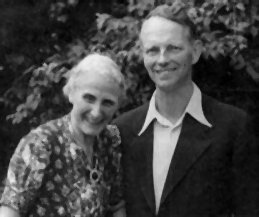Ghis, formerly known as Ghislaine Lanctôt, sent me a copy of her new book, Escape in Prison. It’s actually the new English translation of a book that was first published in French a year or so ago (Ghis is a Quebecer).
It tells the story of her two-month imprisonment on charges related to her tax refusal in Canada, and of the process that led her to take her stand.
Ghis is an interesting case: a sort of hybrid of several varieties of tax resister. You don’t have to go much past the pastel-colored pegasus front and center on her web page to see a strong New Age influence on her style, but she’s also been strongly influenced by the evergreen sovereign-citizen and related conspiracy theories that are so big in the United States.
It makes for a curious mix, and one that I’m not used to seeing in the States, where New Agers and sovereign-citizen types tend to come from very different cultures.
Ghis was a doctor who’d soured on the medical establishment, settling instead on some variety of faith healing and insisting that mainstream medical treatments (like radiation or chemotherapy for cancer, or childhood vaccinations) were bogus. She wrote a book, The Medical Mafia, for which the medical mafia drummed her out of the medical establishment.
Around , Ghis decided to assert her personal sovereignty (what she calls “personocratia”) and begin shedding the accoutrements of her Canadian citizenship. She started by giving up her state health insurance card, later tossed her driver’s license and stopped paying traffic fines, gave up her claim to a family trust, and eventually let her passport expire. She made a list of various state privileges that she was turning her back on: social security, professional licensing, insurance, legally protected property, certifications, intellectual property rights, the courts, access to banks, and so forth.
She also turned her back on the obligations of citizenship, including taxpaying. She stopped paying taxes in .
Some of this appears to be the result of the same sort of ornery individualist anarchism exhibited by a Henry David Thoreau or an Ammon Hennacy, though in this case heavily decorated with spiritual ornamentation about levels of consciousness and our divine identity and The Mother and such.
But Ghis is also motivated by a belief in a dime store novel conspiracy in which a cartel of bankers, in esoteric and bloodthirsty secret societies loyal to the Knights Templar under the Queen of England, who in turn is under the Pope, have enslaved the mass of people by crafting a shadow world of legal entities that they control and that they attach, shadow-like, to each citizen at birth. The government of Canada, like most other such governments, is just a sort of shell company, wholly controlled by this banker cartel.
At birth, in this mythology, a human being is given a corporate moniker, notable for being in all capital letters, to which a certain amount of debt is automatically attached. The rest of that person’s life, they will be paying taxes in order to pay down the debt of this corporation that was created in their name — the proceeds of which all end up, of course, in the hands of the bankers.
The secret to getting out of this system of involuntary servitude is to sever the connection between the human being and the legal corporation that bears a similar name. To this end, Ghis announced that she would no longer consider herself to be answerable for the debts, obligations, or what-have-you of this corporate entity called GHISLAINE LANCTÔT.
To Ghis’s surprise, this approach didn’t make much headway in the Canadian legal system. What Ghis considers a legal fiction distinct from her person, the legal system just thinks of as a signifier for that person, much the same way that the rest of the world uses names. “Judicial authorities are not used to true sovereign beings,” Ghis complains, “and took my words as a proof of insanity.”
The courts had eventually noticed her refusal to pay taxes (though not until ), and sent GHISLAINE LANCTÔT a notice to appear in court and explain herself. Ghis, naturally assuming this to be a case of mistaken identity, ignored the notice. In absentia, she was sentenced to a $1,000 fine for each year of failure to file and ordered to file for those years within 30 days. She ignored this as well.
She was then ordered to appear and explain her noncompliance with the order. On ignoring this, she was eventually arrested and hauled into court. Refusing to sign any papers bearing the name of her capitalized doppelganger, she was imprisoned to await trial, but, almost two months later was released when the Judge realized that even if convicted, she wouldn’t be sentenced to more than the time she’d already served.
The first half of her new book mostly concerns her jail time, the other women she met behind bars, and her successes and struggles in using nonviolent communication strategies in that environment. This section I think would have interest to any woman anticipating doing time who wants to know what to expect, or to anybody who wonders how one might mesh nonviolent principles with interpersonal interactions within the coercive and pathological prison system. The title of Ghis’s book comes from her statement to fellow prisoners that “freedom is inside” — a double-meaning meant to suggest that true freedom is found within the individual and also that it is available to prisoners even while they remain behind bars.
The second half of the book includes most of her perspective on the legal battle, and several appendices that include her declarations of sovereignty, some press releases from the time of her case, and some letters she sent from behind bars.
I can’t say I found Ghis to be terribly sympathetic. Her vague, gauzy spirituality reminds me too much of dozens of other varieties of puerile New Age balderdash, her medical wishful thinking is positively dangerous, and her conspiracy theories strike me as only half a degree less cuckoo than those of David Icke. When your tales of evil at the root of power fail to seem even remotely convincing to someone as cynical about government as I am, maybe it’s time for a reality check.
But at times, Ghis succeeds in painting her vision of a person reclaiming personal responsibility and personal sovereignty and discarding her legal persona like an expired chrysalis. I admire her for taking inventory of both the privileges and burdens of citizenship and for courageously deciding to cast both sets away in favor of something better. Imagine if we all had that determination and willingness to follow through.


